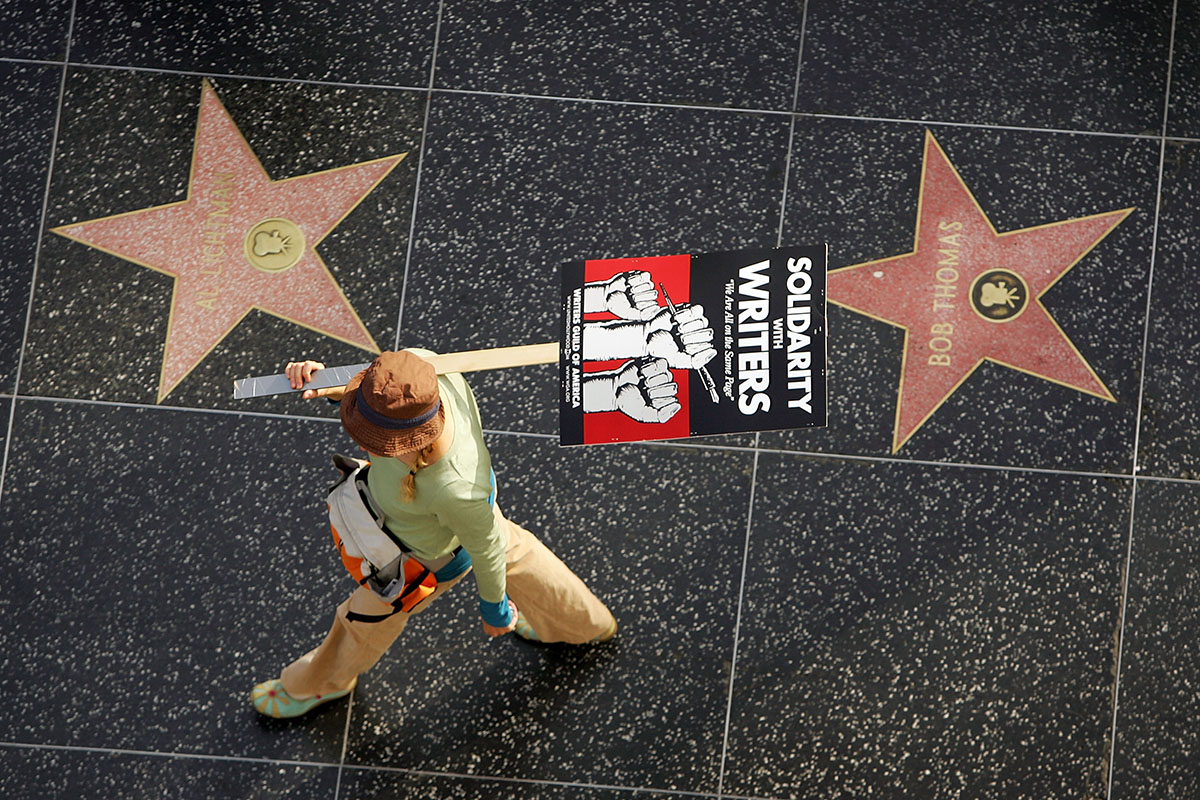WGA Strike: Studios May Already Be Trying to Use AI as Scab Labor

The Writers Guild of America is now in its fourth day of striking, with writers picketing outside of Warner Bros., Amazon, and other major studios. With any strike comes the possibility of scab labor—that is, workers willing to break solidarity, cross the picket line, and work during the strike—but with the WGA strike comes a new twist. At least a couple of studios are reportedly looking into using Artificial Intelligence to write scripts during the shutdown.
Earlier this week, The Hollywood Reporter interviewed Amy Webb, CEO of Future Today Institute and entertainment industry consultant. Webb reported that she’s been approached about the potential use of AI during the strike. “I’ve had a couple of higher-level people ask, if a strike does happen, how quickly could they spin up an AI system to just write the scripts?” Webb says. “And they’re serious.”
Webb clarified that she doesn’t think AI will start spitting out production-ready scripts. “What I am saying,” she told THR, “is the conditions are right in certain cases for an AI potentially to get the script 80 percent of the way there and then have writers who would cross the picket line do that last 20 percent of polishing and shaping. That’s possible for certain types of content.” Webb cited procedural dramas like Law & Order as one type of show that studios could try to write with AI.
AI is a hot-button issue among writers and studios
One of the WGA’s demands, in negotiating their now-expired contract with the Alliance of Motion Picture and Television Producers, was limiting the use of AI in writers’ rooms. Specifically, the WGA wanted to ensure that studios didn’t replace human writers with AI programs when creating literary and source material.
In response, the AMPTP rejected the proposal, and instead offered writers “annual meetings to discuss advancements in technology.”
AI does not produce good writing
As we saw in the recent flood of AI-produced stories submitted to Clarkesworld and other science fiction magazines, AI simply can’t produce the kind of smart, nuanced, heartfelt writing that a human can. Instead, it simply mimics writing that already exists. Right now, the question of whether AI writing should be given a fair chance is moot, because it’s not good enough to warrant consideration. At best, it’s unimaginative and formulaic. At worst, it’s garbled plagiarism.
This is the future that studios apparently want: an entertainment landscape of AI-generated TV shows that recycle the same tropes again and again. When you pay the money to hire good writers, you get good TV. When you force writers to work for low pay and terrible working conditions—or even worse, replace them with robots—your content suffers. How do studios not see that?
Here’s hoping that studios can’t get their AI experiments off the ground. In the meantime, why not support your favorite TV writers by joining a picket line?
(via The Hollywood Reporter, featured image: David McNew/Getty Images)
Have a tip we should know? [email protected]
